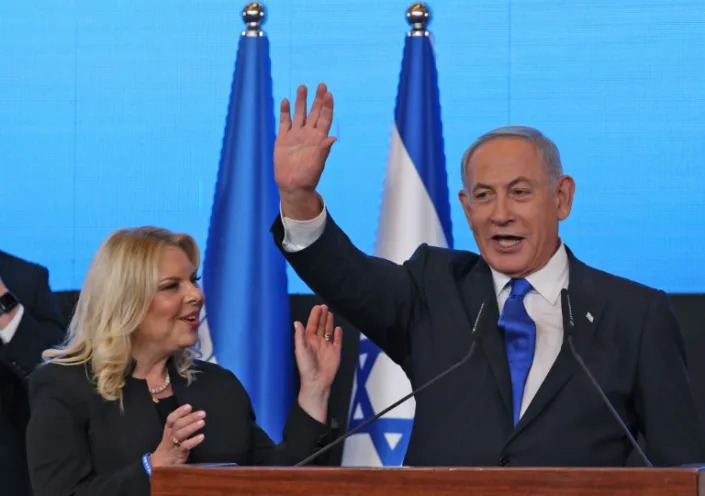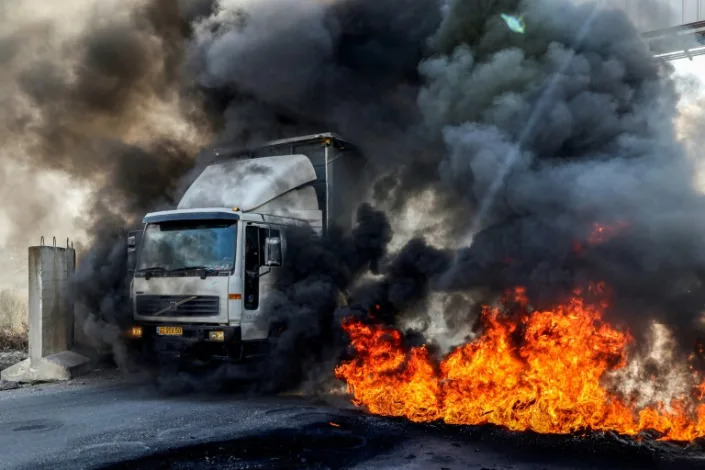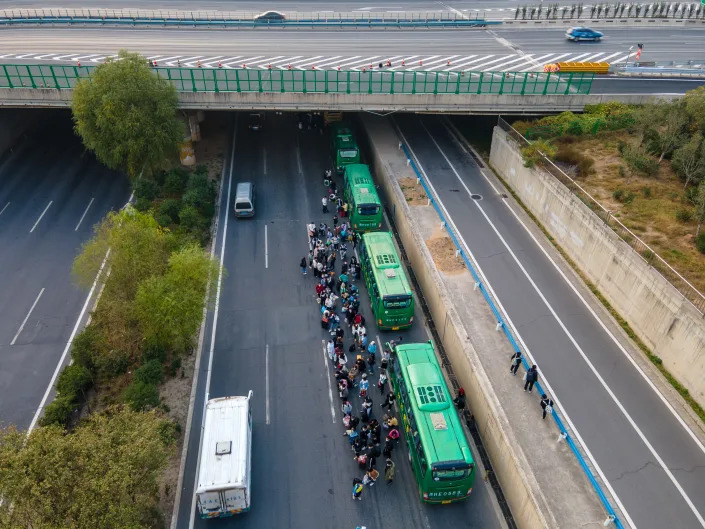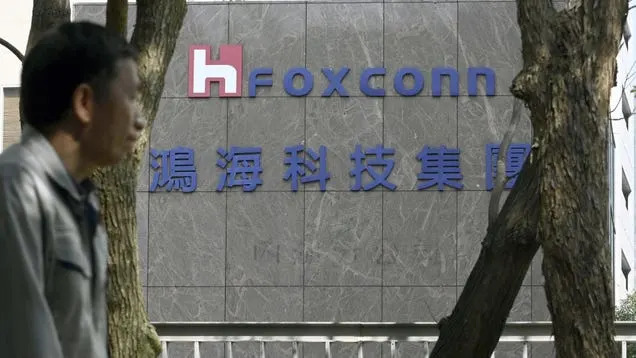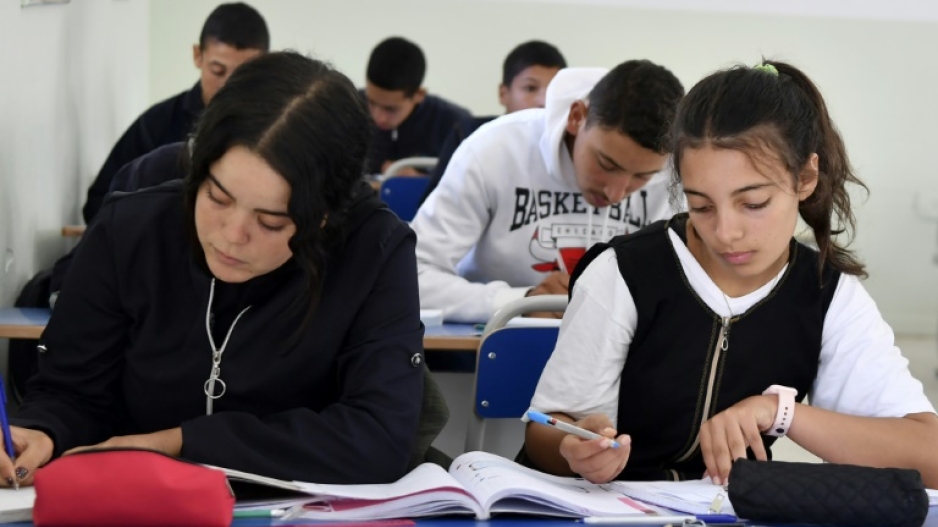At 'African COP', continent's climate needs
Patrick GALEY
Thu, November 3, 2022
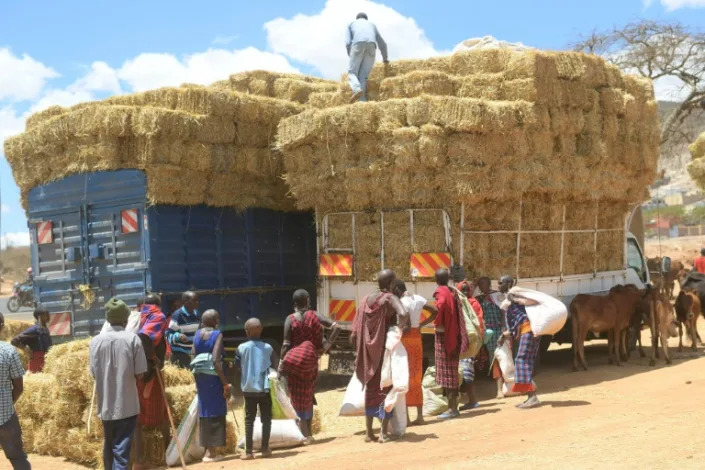
It is being billed as the "African COP" but scientists and campaigners on the continent least responsible for climate change fear the UN summit that begins on Sunday in Egypt will once again leave them sidelined.
As the toll of climate-linked disasters mounts in debt-ridden countries across Africa, governments are demanding that rich polluters pay for the harm their emissions have already caused, known as "loss and damage".
"Historically, Africa is responsible for less than four percent of global emissions, but Africans are suffering some of the most brutal impacts of the climate crisis," said Ugandan campaigner Vanessa Nakate.
"We need financial support to cope with the loss and the damage we're experiencing across the continent. We need polluters to compensate for the destruction they've caused."
Richer governments rejected a call for a financial mechanism to address losses and damage at last year's climate talks in Glasgow and instead negotiators agreed to start a "dialogue" on financial compensation.
But as floods, heat waves and droughts sweep across the planet, hitting the most vulnerable hardest, activists are hoping the issue will take centre stage at COP27 in Egypt.
- African countries 'shortchanged' -
In Africa alone, extreme weather events have killed at least 4,000 people and displaced 19 million so far this year, a study by the Carbon Brief news service said last week.
The ongoing drought in East Africa is impacting the livelihoods of more than nine million people, and 1.4 million people have been displaced in recent weeks in the worst floods on record in Nigeria.
The UN's Intergovernmental Panel on Climate Change in February warned that tens of millions of Africans face a future marked by drought, disease and displacement due to global heating.
"Multiple African countries are projected to face compounding risks from: reduced food production across crops, livestock and fisheries; increasing heat-related mortality; heat-related loss of labour productivity; and flooding from sea level rise," scientists wrote in a dedicated chapter on the continent.
Chukwumerije Okereke, a professor in environment and development at Britain's Reading University, said that African nations would demand greater action from the polluting countries that are driving climate change.
"African countries believe they have been significantly shortchanged because they are the most vulnerable to the impact of climate change," he told AFP.
"Ultimately, the best way to stave off a more devastating impact of climate change on the continent is through rapid decarbonisation."
Countries agreed at last year's UN climate talks in Glasgow to raise the ambition of their emissions-cutting plans. However, the UN says those additional measures would result in a pollution cut of less than one percent by 2030.
The Glasgow summit also produced a new strategy for financing the energy transition, with a group of rich nations committing to providing $8.5 billion to coal-dependent South Africa over three to five years -- in grants and loans -- to help its climate plan and catalyse private investment.
This week the World Bank said that South Africa, one of the world's largest greenhouse gas emitters, will require at least $500 billion to achieve carbon neutrality by 2050.
Susan Chomba, director of the African NGO Vital Landscapes, said governments should use COP27 to push green development investment on the continent.
"We do need development for our people and we need to use the resources that are within our reach on the continent," she said.
"The war in Ukraine has exposed the naked risk of overdependence on fossil fuels, even for the richest economies, but also the ripple effect that it is having on energy fertiliser and food prices on the continent."
- 'Fake promises' -
Progress at recent COPs has been stymied by a failed promise by rich nations to provide at least $100 billion annually to developing ones to help decarbonise while adapting to climate impacts.
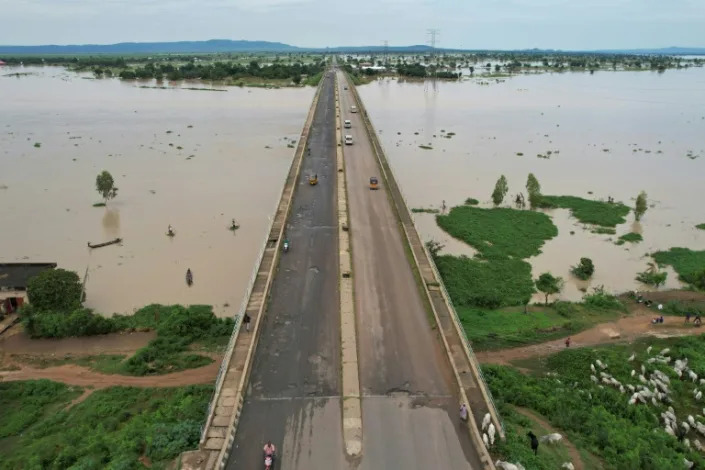
"The key point that I'm really looking forward to is that COP27 is going to be a COP where we're going to be able to build up trust," said Ineza Grace from the Loss and Damage Youth Collaborative.
"All of those fake promises have never been accomplished and we are the generation that is kind of living in the hotspot. But we are also a generation that does not want to sit down and just continue to be victims."
Okereke said to expect "constructive ambiguity" around loss and damage finance.
"If they do set up such a facility then it might still be four or five years before the structure or the functionalities of such a facility is agreed," said Okereke.
"So poor countries should be aware that while having a facility is a victory, it may not necessarily translate to more dollars coming to them."
The Associated Press
Wanjohi Kabukuru
Publishing date: Nov 03, 2022
The 27th annual Conference of the Parties of the U.N. Framework Convention on Climate Change — better known as COP27 — will be held in the resort city of Sharm el-Sheikh in Egypt and begins next week. It’s been branded as the “African COP”, with officials and activists hoping the conference’s location will mean the continent’s interests are better represented in climate negotiations.
Hosts Egypt say the meeting represents a unique opportunity for Africa to align climate change goals with the continent’s other aims, like improving living standards and making countries more resilient to weather extremes. Organizers expect over 40,000 participants, the highest number ever for a climate summit on the continent.
Ever since the conference’s first iteration in Berlin in 1995, the U.N. climate summit continues to rotate annually among the five U.N. classified regions: Africa, Asia, Latin America and the Caribbean, central and eastern Europe, and western Europe. It’s the fifth time that an African nation has held the U.N. climate summit, with Morocco, South Africa and Kenya all serving as former hosts.
The first African summit, held in Marrakech in 2001, passed landmark accords on climate funding and made other key decisions on land use and forestry. The following three meetings on the continent had some success on issues like adapting to climate change, technology and sowing the seeds for the Paris Agreement in 2015 years earlier. Marrakech is also the last African city to host the event, having hosted a second COP in 2016, that aimed to implement some of the Paris goals.
The Paris Agreement, considered a major success of the U.N. climate summits, saw nations agree to limit warming to “well below” 2 degrees Celsius (3.6 degrees Fahrenheit), with an aim of curbing it to 1.5 degrees Celsius (2.7 degrees Fahrenheit).
And although experts don’t expect agreement between countries to reach the same scale as Paris, hopes on the continent are high for the upcoming conference.
Mithika Mwenda, who heads the Pan African Climate Justice Alliance, told The Associated Press that the summit “presents a unique opportunity to place Africa at the center of global climate negotiations” and hoped the conference “truly delivers for the African people.”
Mwenda said that the “special needs and circumstances” of the continent need to be considered as it attempts to both increase access to electricity for millions of people while addressing climate change and limiting the use of fossil fuels.
He added negotiations must prioritize how vulnerable countries will adapt to climate change, address compensation from high-polluting countries to poorer ones, known as “loss and damage”, and seek avenues for financing for both a move to cleaner energy and building resilience to climate change. Many developing countries look to the U.S. and much of Europe, who have contributed the largest share of emissions over time, to pay for damage caused by climate change.
So far, pledges by rich countries on climate finance, such as the $100 billion-a-year promise to help poorer nations meets their climate goals, have not been met. The Egyptian organizers said the summit should focus on how countries can implement pledges made in previous years.
“Africa’s hopes for COP27 is that there has to be progress on a new goal on financing,” said Jean-Paul Adam, who heads the climate change division at the U.N. Economic Commission for Africa, adding there needs to be “clarity as to what will be provided as grants and what will be provided as concessional loans and the remainder being dealt with through prudential private sector investment.”
The onus is also on industrialized countries to rapidly reduce emissions so that the global climate goal of limiting warming to 1.5 degrees Celsius can be achieved, Mwenda said. African countries account for just 3% of total global greenhouse gas emissions but experts say they are highly vulnerable to the impacts of climate change in large part because they lack the ability to quickly adapt to the warming climate.
The climate conference will be a real test of world leaders’ commitment to addressing climate change, said Landry Ninteretse, regional director for the environmental group 350Africa.org.
“We are tired of years of empty talk and broken promises,” said Ninteretse. “We are now demanding nothing else but robust funding mechanisms that address loss and damage in a fair, accessible and transparent way.”
Ninteretse agreed that “the biggest emitters must commit to rapidly cut emissions” and “help the nations most vulnerable to climate change” by financing climate initiatives.
Past COPs have seen disagreements and hardline positions emerge as national interests clash, a concern for those hoping tangible results will come out of the negotiations.
“The discussions tend to be protracted, uncompromising and acrimonious at times,” said Mwenda, a veteran of the climate negotiations circuit. “But in 2015, the world ratified the Paris Agreement, which was a major milestone.”
But the success of the COP in Paris was the exception, rather than the rule, experts say, with a lot of work still to do to address climate change.
“Negotiations have lasted three decades but the impacts of the climate crisis, manifested by floods, droughts, among other extremes, persist,” Mwenda said.
——
Associated Press climate and environmental coverage receives support from several private foundations. See more about AP’s climate initiative here. The AP is solely responsible for all content.









